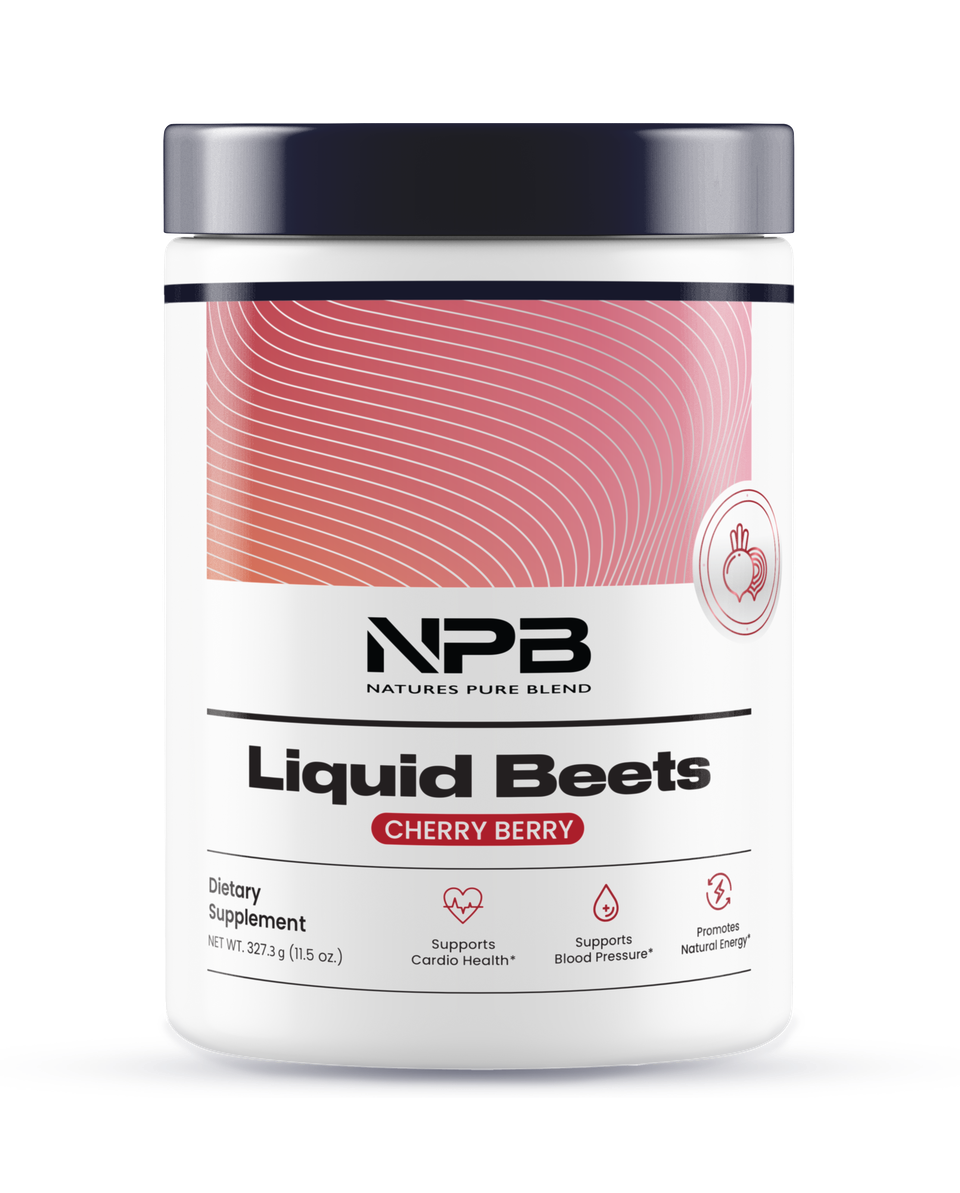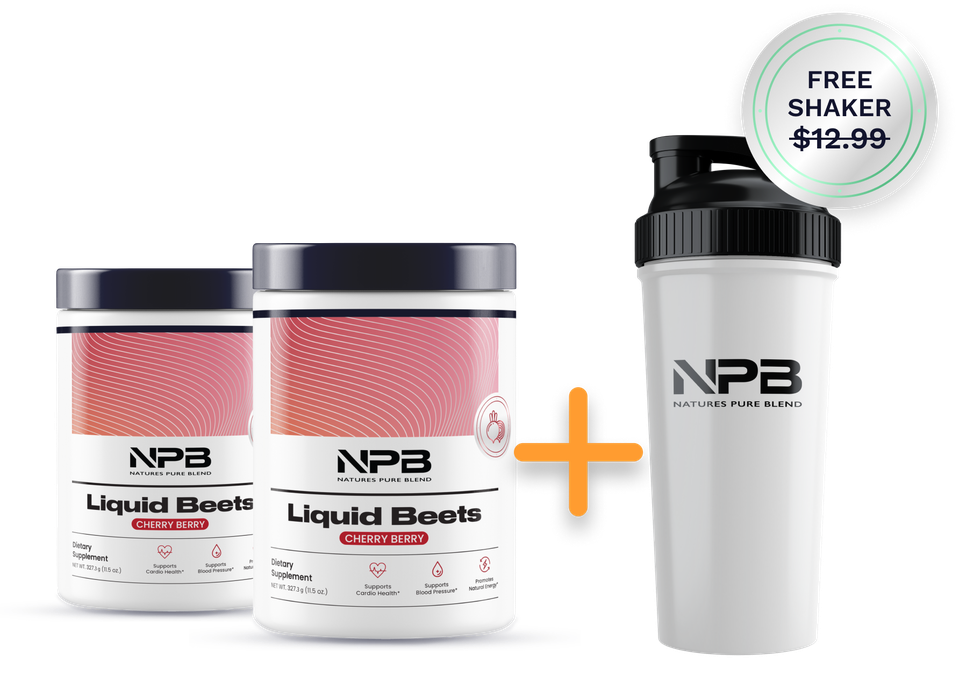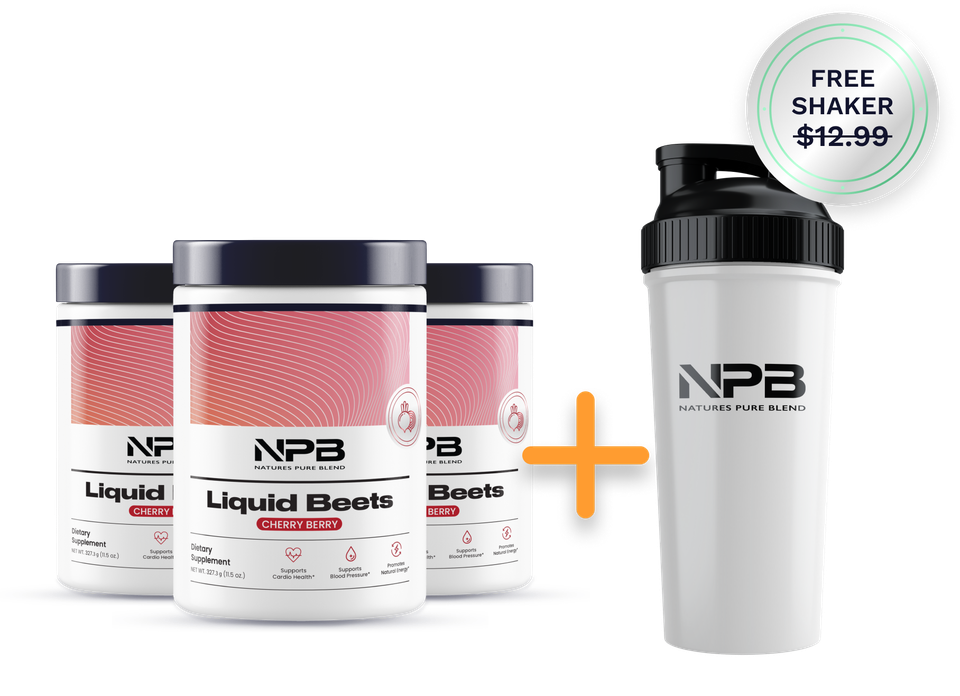Get Free Shipping On Orders $99+
4 Methods To Lower Blood Pressure Without Exercise
High blood pressure, or hypertension, is a common condition that can lead to serious health problems if not managed properly. While exercise is often recommended as a way to lower blood pressure, it’s not always feasible for everyone due to various physical limitations. Fortunately, there are effective methods to reduce blood pressure without exercise. Here are four approaches to consider:
1. Adopt a Heart-Healthy Diet
Your diet plays a crucial role in managing blood pressure. Here are some dietary changes that can help: 1
- Reduce Sodium Intake: High sodium levels can cause the body to retain water, increasing blood pressure. Aim to consume no more than 1,500 mg of sodium per day. Avoid processed foods, canned soups, and salty snacks, and choose fresh or frozen vegetables over canned varieties.
- Increase Potassium-Rich Foods: Potassium helps balance sodium levels in the body. Foods like bananas, oranges, spinach, sweet potatoes, and beans are excellent sources of potassium.
- Eat Whole Grains, Fruits, and Vegetables: These foods are rich in nutrients that support heart health. The DASH (Dietary Approaches to Stop Hypertension) diet is particularly effective, emphasizing whole grains, fruits, vegetables, lean proteins, and low-fat dairy.
- Limit Alcohol and Caffeine: Both substances can raise blood pressure if consumed in excess. Try to limit your alcohol intake to moderate levels (one drink per day for women and two for men) and keep caffeine consumption in check.
2. Manage Stress
Chronic stress can contribute to high blood pressure. Implementing stress management techniques can have a significant impact on your blood pressure levels: 2
- Practice Deep Breathing: Deep, slow breathing can help relax your nervous system and lower stress levels. Try deep breathing exercises for a few minutes each day.
- Engage in Relaxation Techniques: Activities like meditation, yoga, and progressive muscle relaxation can help reduce stress. Even a few minutes of these practices each day can make a difference.
- Set Aside Time for Hobbies: Engaging in activities you enjoy, whether it's reading, painting, or gardening, can help take your mind off stressors and provide a sense of relaxation.
- Maintain a Positive Outlook: Cultivating a positive mindset and practicing gratitude can help manage stress more effectively.
3. Limit Sugar and Refined Carbohydrates
Dietary changes beyond sodium reduction can significantly impact blood pressure levels: 3, 4
- Reduce Sugar Intake: High sugar consumption, particularly from sugary drinks and snacks, can contribute to weight gain and hypertension. Opt for natural sweeteners or reduce the overall amount of added sugar in your diet.
- Avoid Refined Carbohydrates: Foods like white bread, pasta, and pastries can cause spikes in blood sugar levels, which can affect blood pressure. Choose whole grains like brown rice, quinoa, and whole wheat products instead.
4. Get Enough Sleep
Adequate sleep is essential for overall health and can significantly impact blood pressure: 4
- Establish a Sleep Routine: Aim for 7-9 hours of quality sleep each night. Go to bed and wake up at the same time every day, even on weekends, to regulate your body’s internal clock.
- Create a Relaxing Sleep Environment: Ensure your bedroom is conducive to sleep by keeping it dark, quiet, and cool. Consider using blackout curtains, earplugs, or a white noise machine if needed.
- Limit Screen Time Before Bed: The blue light emitted by phones, tablets, and computers can interfere with your sleep. Try to avoid screens at least an hour before bedtime and engage in relaxing activities like reading or listening to soothing music.
- Address Sleep Disorders: Conditions like sleep apnea can significantly impact blood pressure. If you suspect you have a sleep disorder, consult a healthcare provider for appropriate diagnosis and treatment.
Conclusion
Lowering blood pressure without exercise is entirely possible through dietary changes, stress management, sleep improvement, and smart nutritional choices. These methods can help you maintain healthy blood pressure levels and improve your overall well-being. Remember, it’s essential to work closely with your healthcare provider to develop a personalized plan that suits your needs and health conditions. By incorporating these strategies into your daily routine, you can take significant steps toward better heart health.
Boost Circulation, Reduce Inflammation & Support Blood Pressure!
Join Our Community Of Health Lovers & Get Special Deals
Receive study-backed health tips, exclusive email deals, and more.
†Disclaimer: These statements have not been evaluated by the Food and Drug Administration. These products are not intended to diagnose, treat, cure or prevent any disease. Product results may vary from person to person.




